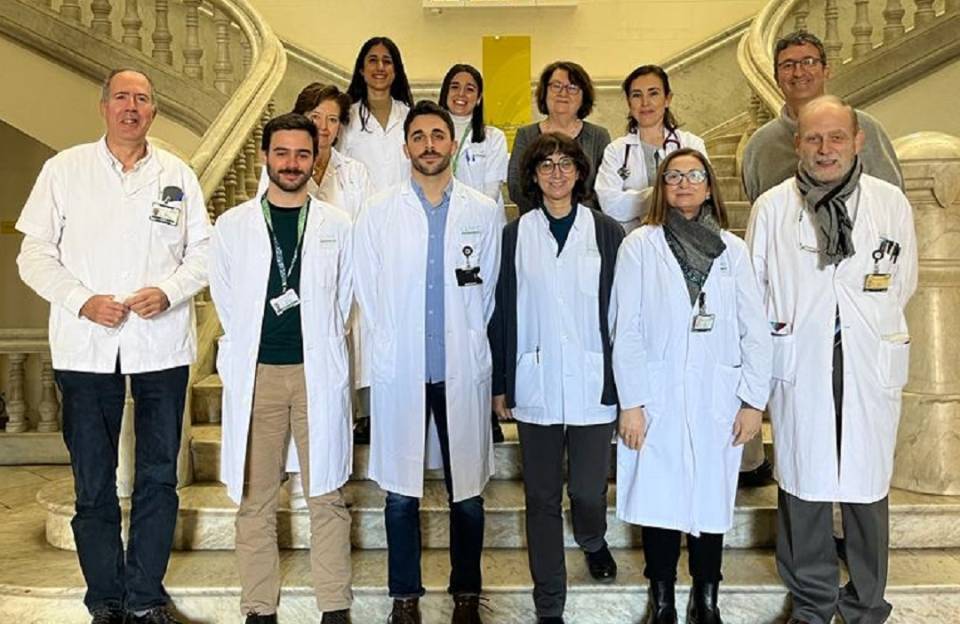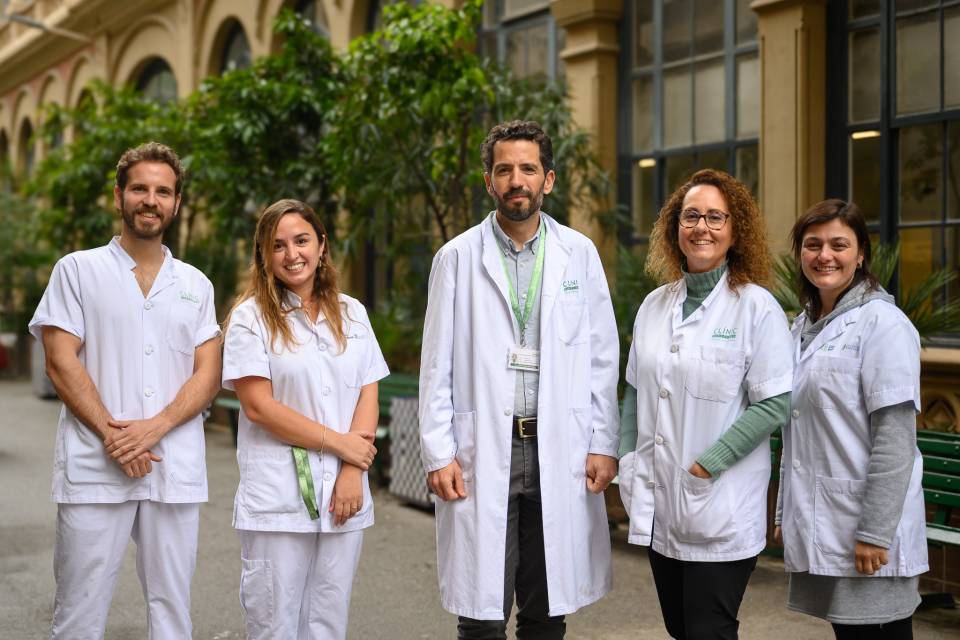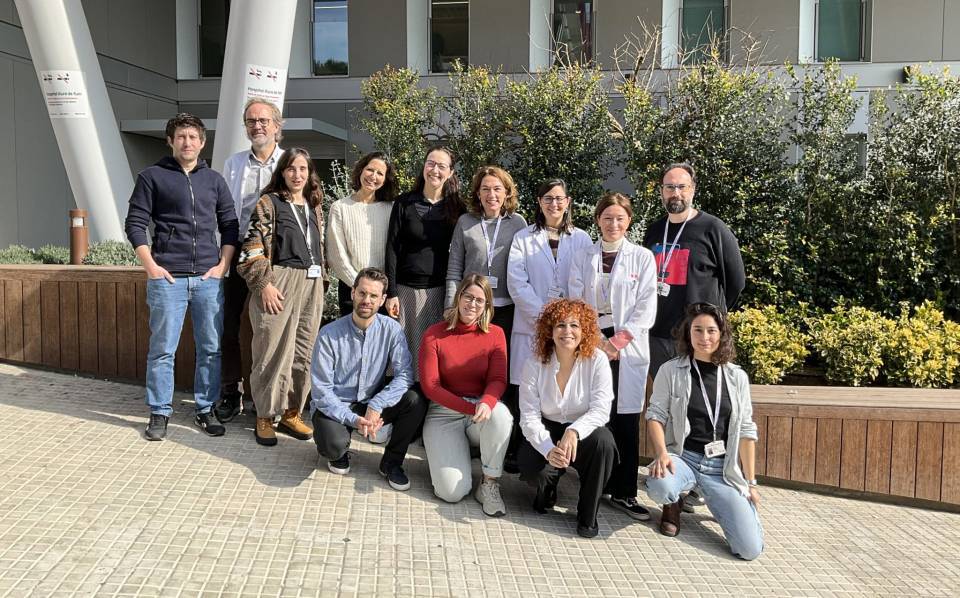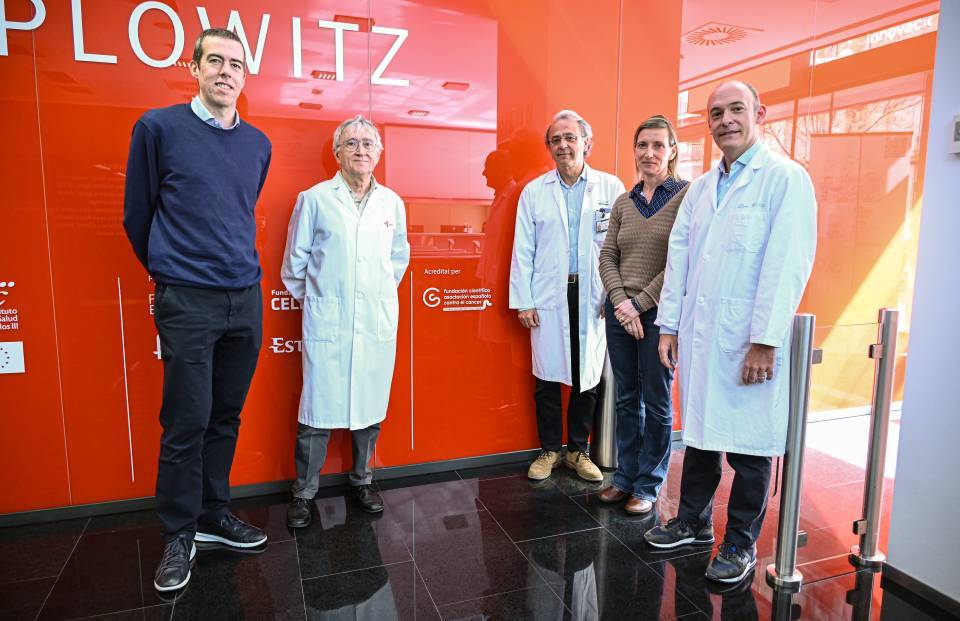The combination of the drugs lopinavir and ritonavir is administered to treat human immunodeficiency virus (HIV) infection, as it blocks protease, a key enzyme in the virus replication process. However, therapeutic experience with patients shows that ritonavir interacts with many drugs, reducing their metabolism. One of these is tacrolimus, a drug used in solid organ transplants to reduce the activity of the immune system.
“During the first wave of COVID-19, lopanivir/ritonavir therapy was used extensively due to its in vitro activity against the SARS-CoV-2 virus. To maintain immunosuppression and avoid toxicities in transplant patients, the medical staff decided to replace tacrolimus with another immunosuppressant drug, prednisone”, says Montse Tuset of the Pharmacy Service, part of the Medicines Area at Hospital Clínic Barcelona. With Clínic Barcelona-IDIBAPS researchers, Tuset evaluated the efficacy and safety of prednisone treatment in 23 solid organ transplant recipients admitted to the Barcelona hospital with a diagnosis of SARS-CoV-2 infection between March and June 2020.
The results of the study, published in the journal Clinical Microbiology and Infection, show that the time from suspension of tacrolimus treatment and initiation of ritonavir combination therapy is key to reducing the risk of toxicity. “Most of the patients who began treatment in the first 18 hours after the final dose of tacrolimus showed toxic levels of tacrolimus in their blood. On the other hand, the three patients who received the double antiviral therapy after 24 hours presented no toxicity”, says the researcher. All patients received prednisone instead of tacrolimus. The authors of the study stress that the use of prednisone is safe. “Monotherapy with prednisone during treatment with lopinavir/ritonavir was effective in transplant recipients, as no acute episodes of organ failure or toxic responses were observed”.
The resumption of tacrolimus treatment, at half the usual dose, between 48 and 72 hours after ending lopanivir/ritonavir therapy, did not produce any adverse effects either. “However, larger multicentre studies are needed to confirm these findings”, says Tuset. "At present, the combination of lopanivir/ritonavir in treating COVID-19 has been discontinued. However, the experience acquired in this research may be applicable to the use of nirmatrelvir/ritonavir (Paxlovid®), the new approved treatment against SARS-CoV-2 infections, as both therapies contain ritonavir, which causes drug-drug interactions”.
Reference article
Gonzalez-García R, Roma JR, Rodríguez-García M, Arranz N, Ambrosioni J, Bodro M, Castel MÁ, Cofan F, Crespo G, Diekmann F, Farrero M, Forner A, LLigoña A, Marcos MÁ, Moreno A, Ruiz P, Soy D, Brunet M, Miró JM, Tuset M. Drug-drug interactions of ritonavir-boosted SARS-CoV-2 protease inhibitors in solid organ transplant recipients: experience from the initial use of lopinavir-ritonavir. Clin Microbiol Infect. 2023 Jan 11:S1198-743X(23)00002-2.




